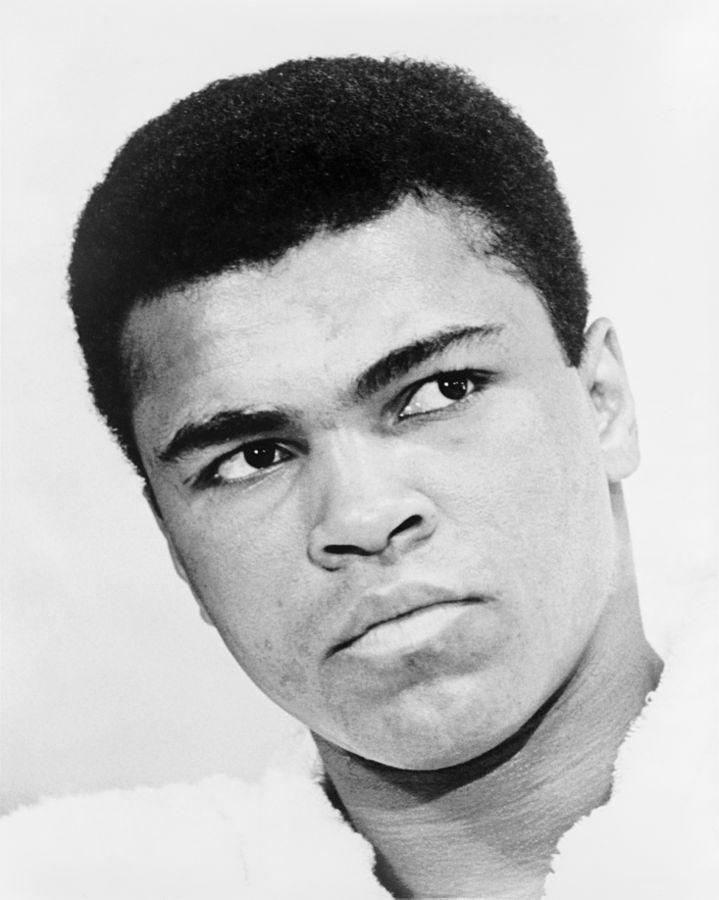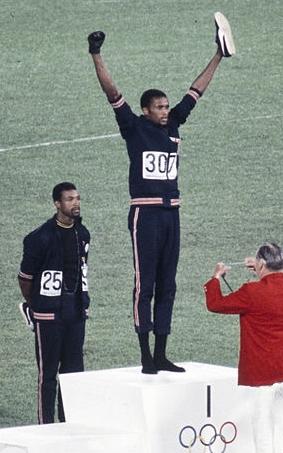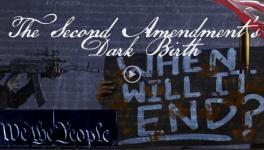Muhammad Ali: The Greatest

Bust photographic portrait of Muhammad Ali in 1967. World Journal Tribune photo by Ira Rosenberg.
Muhammad Ali, the boxing great, if not the greatest, died at 74 of Parkinson's disease. But it is not only for his boxing that we remember him, but his courage to stand up for his beliefs. He refused to be drafted into America’s Vietnam War, even if that meant loss of his boxing career and going to jail. He challenged white America of the 60's, and the belief that sports figures should be seen but not heard. For many, who are a part of the 60's generation, Ali symbolised protest and black pride. When he said “I am beautiful”, it was not the vainglorious bragging of a brash, young man, but an assertion that later transformed into “Black is Beautiful”. White America has never forgiven him for his “transgressions”, evident from the obituaries that were published in mainstream US press.
Yes, Ali was never saccharin sweet, all goodness and light. He joined the Nation of Islam, as did Malcolm X, whose writings and speeches had enormous influence on the Black Panthers. His conversion to Islam was a rejection of slavery, his “slave name” of Cassius Clay and his “slave religion”. Those such as Martin Luther King Jr., who used the Black Church in the fight for civil rights, disagreed with him, as well his belief in black nationalism and a separate black identity. Today, we do not have to choose between their beliefs; we can honour all of them.
Ali's generation was in search of answers. The Civil Rights movement was not the only one that drew young people of colour. A number of them sought answers in militant black nationalism.
In hindsight, people may claim that -- the Black Panthers, The Weathermen, chose a wrong path and destroyed the progressive movement in the US with their militancy. But let us not forget that they were facing a different kind of society, with racist, segregationist laws, and a brutal, repressive police force, an FBI using infiltration, direct sabotage, agent provocateurs and every dirty trick in the book. This was J Edgar Hoover's FBI and the age of Contelpro.
I still remember the personal sacrifices that African American athletes and sportsmen made for their stand against racism in the US. Muhammad Ali was the pioneer, who in 1967 refused to be drafted into the Vietnam War, and was willing to sacrifice his career and even his freedom. He said:
Why should they ask me to put on a uniform and go 10,000 miles from home and drop bombs and bullets on Brown people in Vietnam while so-called Negro people in Louisville are treated like dogs and denied simple human rights? ...I have been warned that to take such a stand would cost me millions of dollars. But I have said it once and I will say it again. The real enemy of my people is here. I will not disgrace my religion, my people or myself by becoming a tool to enslave those who are fighting for their own justice, freedom and equality. If I thought the war was going to bring freedom and equality to 22 million of my people they wouldn’t have to draft me, I’d join tomorrow. I have nothing to lose by standing up for my beliefs. So I’ll go to jail, so what? We’ve been in jail for 400 years.
Ali was arrested, and his boxing license and his heavyweight title immediately revoked by the sports authorities. He was convicted of draft evasion and sentenced to 5 years in prison. He remained free pending his appeal, and extensively toured the US speaking out against the Vietnam War. Finally, the rising tide of movement against the war changed the mood of the country and the Supreme Court unanimously overturned his conviction.
His refusal to accept draft had other repercussions. I remember the front page of even the Indian newspapers that carried the Black Power Salute raised in the 1968 by Tommie Smith and John Carlos of the US track team. They had come 1st and 3rd respectively in 200 metres in the Mexico Olympics and raised their fists in black gloves on the victory podium.

Image Courtesy: wikipedia.org
For this “transgression”, Avery Brundage, President of the International Olympic Committee forced the two athletes to be expelled from the Games for "a deliberate and violent breach of the fundamental principles of the Olympic spirit.” Brundage, who was the President of the US Olympic Committee in 1936, had found no such problem with the Nazi salute of the German athletes in the Berlin Olympic Games.
Again, white America did not forgive the two athletes: they were claimed to have breached the spirit of the Olympics, and paid a heavy price.
Muhammad Ali brought to the issue of racism, then confined to only political space, in popular eye. It had a huge impact on the African American youth. Ali became a worldwide icon, for his opposition to the Vietnam War and his opposition to racism. Compare Ali to Michael Jordan, equally an iconic sports figure. When asked to endorse Harvey Gantt, the black mayor of Charlotte contesting in 1990 against Jesse Helms, the arch racist and homophobic, sitting senator of North Carolina, Jordan said, “Republicans buy sneakers too”.
Ali set the bar for all public figures, not just sports celebrities. Something for all of us to remember as we pass through difficult times, both in India and in other parts of the world.
Cover Image courtesy: wikipedia.org
Disclaimer: The views expressed here are the author's personal views, and do not necessarily represent the views of Newsclick
Get the latest reports & analysis with people's perspective on Protests, movements & deep analytical videos, discussions of the current affairs in your Telegram app. Subscribe to NewsClick's Telegram channel & get Real-Time updates on stories, as they get published on our website.
























